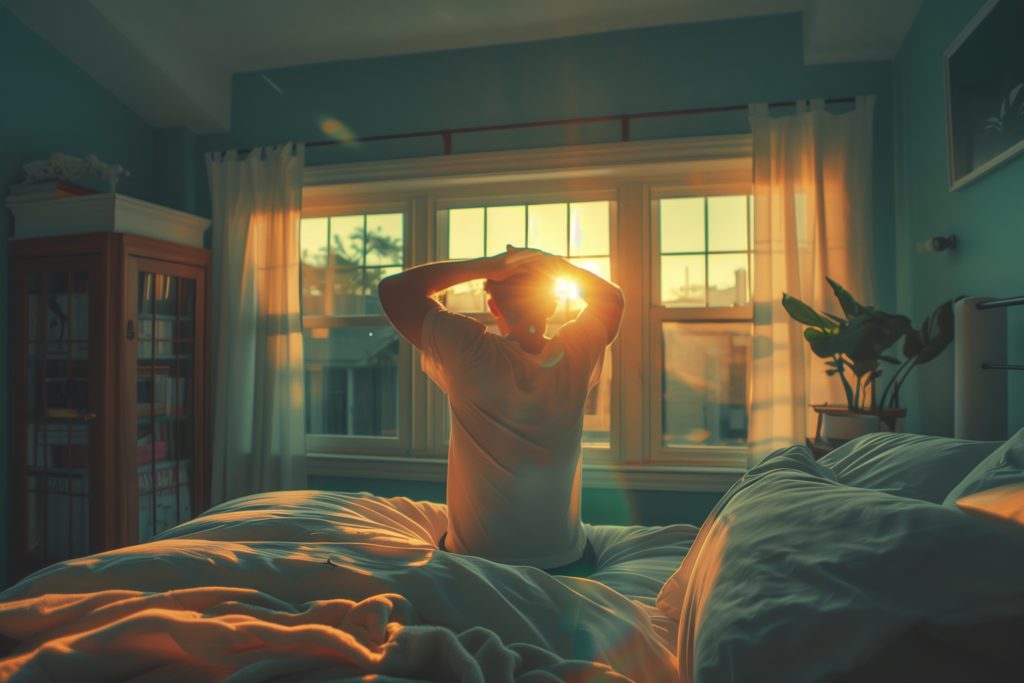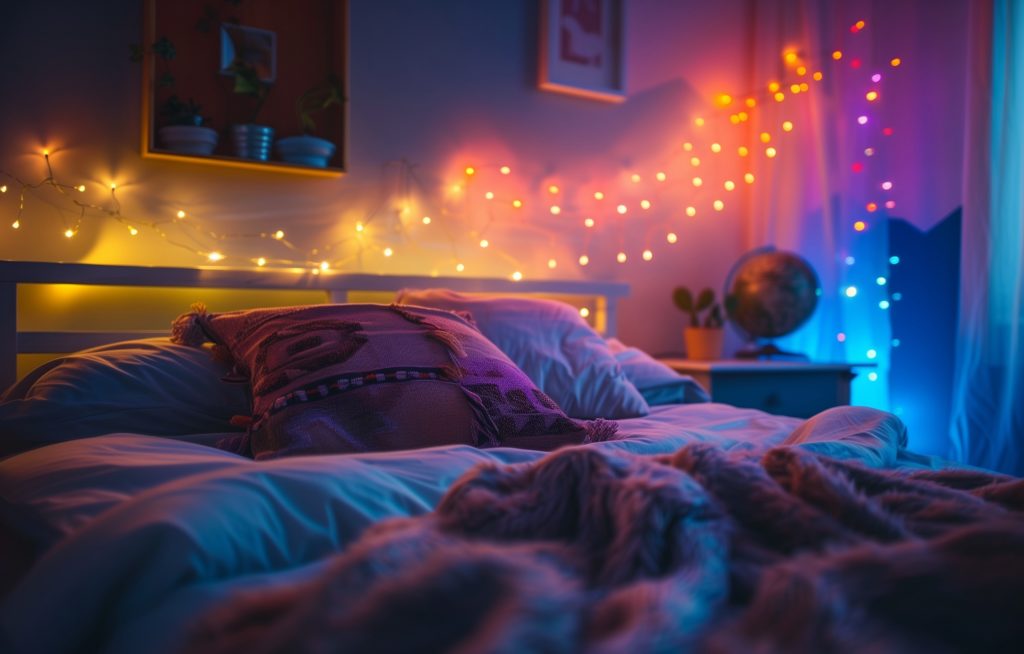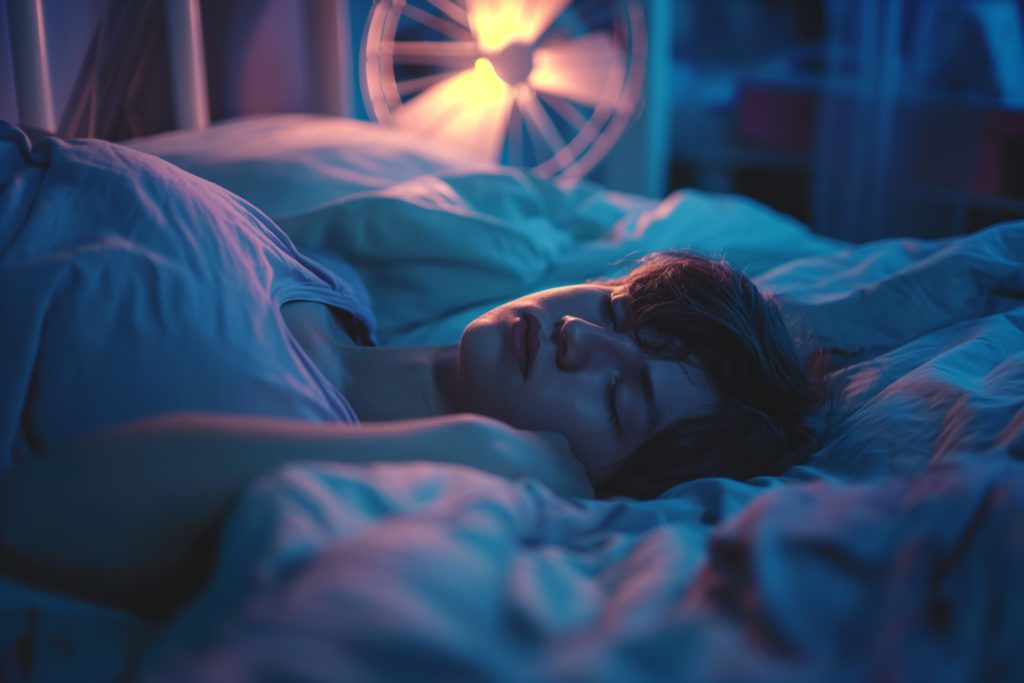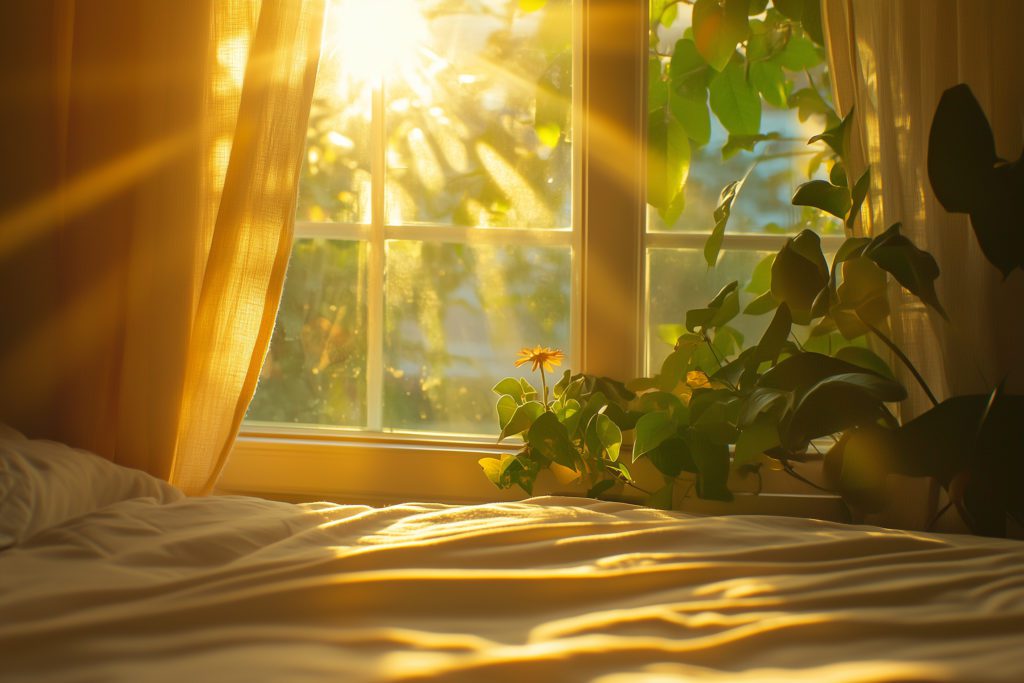
Winter Sleep Hygiene: Adjusting Your Bedtime Routine for the Cold Season
The short days and limited activity levels common in winter can affect your sleep. Explore how to update your sleep hygiene habits for the cold season.

Compared to the sweltering days of summer, it seems as though sleeping in winter should be a breeze. You only need to grab an extra blanket to help you drift off to sleep, right? Unfortunately, while winter is the time for cozying up, it can make sleep difficult for some individuals.
Shorter days and cold weather keeping you indoors can be a detriment to your sleep, keeping you up late, making it hard to stay asleep, or even making it hard to wake up in the morning or fully shake the sleepiness.
The long nights of winter don’t have to seem distressful, though; so long as you modify your sleeping habits and winterize them, you’ll be able to preserve your sleep and enjoy the chilly season at the same time.
How Winter Affects Your Sleep
Do you find yourself tossing and turning during the cold winter nights?
Our bodies rely on their circadian rhythm to regulate sleep-wake cycles, but it’s important to remember that even your circadian rhythm can get things wrong, especially when the seasons change. This is because light is a significant regulator of circadian rhythm, and what happens in the winter? The days get shorter, and we’re exposed to less light.
Light plays an important role in our secretion of melatonin. Namely, sunlight is what tells the body to stop secreting melatonin, and when the sun drops below the horizon, our bodies start to produce melatonin. This is good, as these changes help us feel alert or sleepy. However, things can get blurred in winter.
Morning light is often not as bright in winter, which may not suppress melatonin as much. Furthermore, the sun sets earlier in the evening, which can cause your melatonin levels to rise prematurely in the afternoon or evening. The result of this is that melatonin levels remain fairly consistent during the day rather than peaking and dipping in highs and lows that lead to alertness and drowsiness. Instead, you may feel sluggish and fatigued all day but then struggle to fall asleep at night because there’s no dramatic rise in melatonin.
Along these same lines, sunrise occurs later in the day, which can make waking up hard. Many people may find themselves sleeping in during the winter, but if you sleep in too much, it can make it hard to fall asleep the following night.
Furthermore, it’s not just light that affects your sleep. The dipping temperatures may keep you indoors and severely limit your physical activity. Without this outlet for energy, you may find that sleep isn’t as easy to come by at night.
In good news, the colder temperatures in winter can help you fall asleep easier—you just need to contend with the shortened days and low activity levels to ensure you can fully reap these benefits.
How to Improve Your Winter Sleep Hygiene
Don’t let the cold winter days put a freeze on good sleep; implement these habits to boost your sleep hygiene and get more sleep each night.
Prioritize Morning Light
The biggest hindrance of winter is that there is less daylight. With sunlight crucial for regulating our circadian rhythm and telling the body when to be awake and asleep, it is all the more important for you to prioritize sunlight when you’re able to in winter.
When the days get cold, make sure you’re getting some sunlight shortly after waking up or, depending on when sunrise is, as soon as you’re able. This will help you feel more alert, regulate your circadian rhythm, and make nighttime easier.
Even if you cannot get outside, sitting by a window once the sun comes up can go a long way in helping your circadian rhythm.
Go For A Lunchtime Walk
With the late sunrises and early sunsets, some people may never see any sunlight if they wait for times when they’re not working. In these cases, try to instead get outside during your workday when the sun is out. An easy time to implement this is during your lunchtime.
Remember, any sunlight that you can get during the day will help your circadian rhythm and make it easier to sleep at night, so do what you can to get some sun exposure. Stand or walk in the sun during a break, or maybe even sit by a window as you work.
Avoid Naps
Roaring fires and cold weather may make naps seem appealing during the day, especially when the weather feels gloomy, but napping during the day can impact your ability to fall asleep at night. Namely, you may not be tired enough to sleep, which can then cause you to toss and turn as the hours tick by.
Coziness is something winter sends us searching for, but try to avoid curling up in your bed during the day and pass on movie marathons spent on the couch. These are only recipes for napping disasters.
Prioritize Exercise
The cold winter days may make you shy away from exercise in favor of bundling under some blankets, but exercise is crucial for sleep quality, which may be why you don’t sleep as well in winter as in summer when you’re more likely to explore outdoors.
You’ll have to rely on your motivation during the winter months to get in some physical activity, but just remember that you’ll sleep better because of it. Here are some strategies for making exercise a habit in winter:
- Sign up for an online class so you don’t have to venture into the cold
- Find a friend to exercise with
- Join a gym close to work or home
- Take a brisk walk during a work break or lunchtime (when you’re getting in your sunlight exposure)
- Swim in an indoor, heated pool
While exercise needs to remain a consistent habit each season, you can (and should) modify your activities to match the season. Don’t try to do summer activities in winter; you’ll be miserable and likely won’t stick with it.
Beating the Winter Sleep Blues
If you’re struggling to sleep in the winter, it’s likely because you’re not getting enough sunlight during the day. As the days shorten, you need to focus more on ensuring you get enough sunlight—in winter, it’s not guaranteed in the same way that it is in summer.
Get sunlight exposure as soon as you can in the morning, either when you wake up or once the sun finally begins ascending. Even better, try to get sunlight during the work day, as well, such as by going on a walk during your lunch break or sitting by a window. The more sunlight you get, the less sleepy you’ll feel during the day, and the more you’ll be affected by sunset.
Furthermore, keep up your activity levels during the winter. In addition to working out at home, try other indoor activities such as swimming in an indoor pool or taking a dance class. There are also many winter-themed activities that can get you moving, such as skiing or ice skating.
As the weather dips, make sure you modify your sleep habits so that you can enjoy all the beauty this season has to offer with full energy levels.
FAQ
Is it normal to feel more tired during the winter months?
Yes, it's common to experience increased fatigue during winter. Reduced sunlight exposure can lead to consistent melatonin levels throughout the day, causing feelings of sluggishness. Additionally, colder temperatures may reduce physical activity, contributing to tiredness. Maintaining a regular sleep schedule and staying active can help combat this fatigue.
How can I manage seasonal depression (SAD) to improve sleep?
Seasonal Affective Disorder (SAD) can lead to sleep disturbances, including oversleeping or insomnia. Managing SAD through light therapy, regular outdoor exposure, exercise, and a healthy diet can help regulate mood and improve sleep quality. Maintaining a structured daily routine can also reduce the impact of seasonal depression on sleep.
What is the ideal bedroom temperature for winter sleep?
Maintaining an optimal bedroom temperature is crucial for quality sleep. A cool environment, typically between 60-67°F (15-19°C), is recommended. This range supports the body's natural temperature regulation during sleep. Using appropriate bedding and sleepwear can help achieve and maintain this temperature for a comfortable night's rest.
How can I prevent dry air from affecting my sleep in winter?
Winter air can be dry, leading to discomfort during sleep. Using a humidifier adds moisture to the air, preventing dryness in your throat and nasal passages. Additionally, staying hydrated and using nasal saline sprays can help maintain mucous membrane moisture, promoting better sleep quality.
Why do I wake up with a dry throat in winter?
Indoor heating systems reduce humidity levels, leading to dry air that can irritate your throat and nasal passages. Mouth breathing due to congestion can also contribute to dryness. Using a humidifier, drinking water before bed, and keeping nasal passages clear with saline sprays can help prevent a dry throat in the morning.
Does layering blankets affect sleep quality?
Using too many blankets can lead to overheating, which disrupts sleep cycles. Instead of heavy layers, opt for breathable fabrics like cotton or wool to regulate body temperature. Weighted blankets can also provide comfort without excessive heat, improving sleep quality in winter.
How can I avoid winter-induced leg cramps at night?
Cold weather can tighten muscles, leading to nighttime leg cramps. Staying hydrated, stretching before bed, and keeping warm with socks or a heated blanket can help prevent cramps. Ensuring adequate intake of magnesium and potassium through diet or supplements may also reduce muscle spasms.

Written by
Jessica G
Medical writer freelancer who has written hundreds of articles on varying topics. Masters of Engineering degree in Biomedical Engineering.
Download Pillow
Get help
Press & News
Legal
Connect
X (Twitter)
Company
Copyright © Neybox Digital Ltd.



